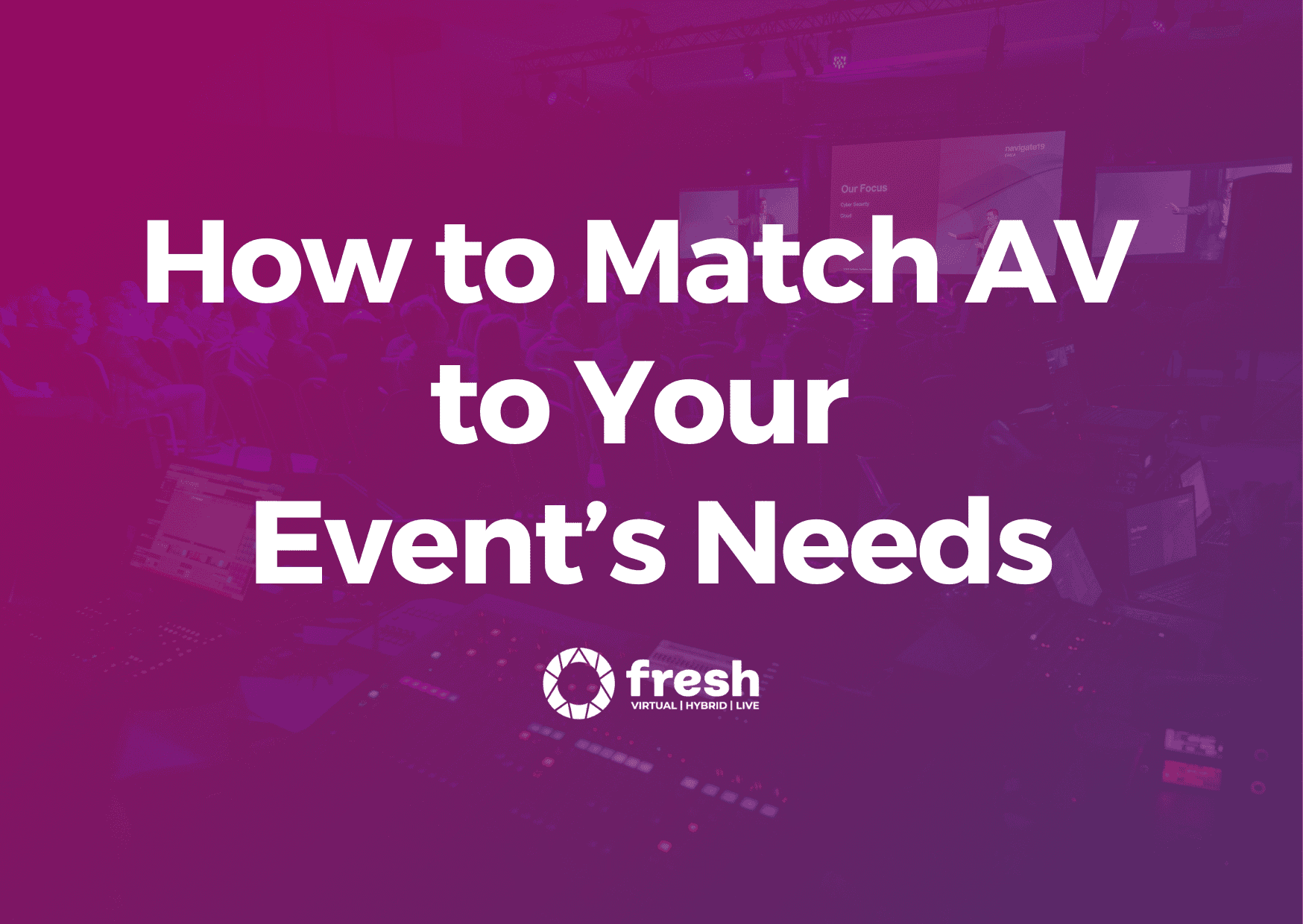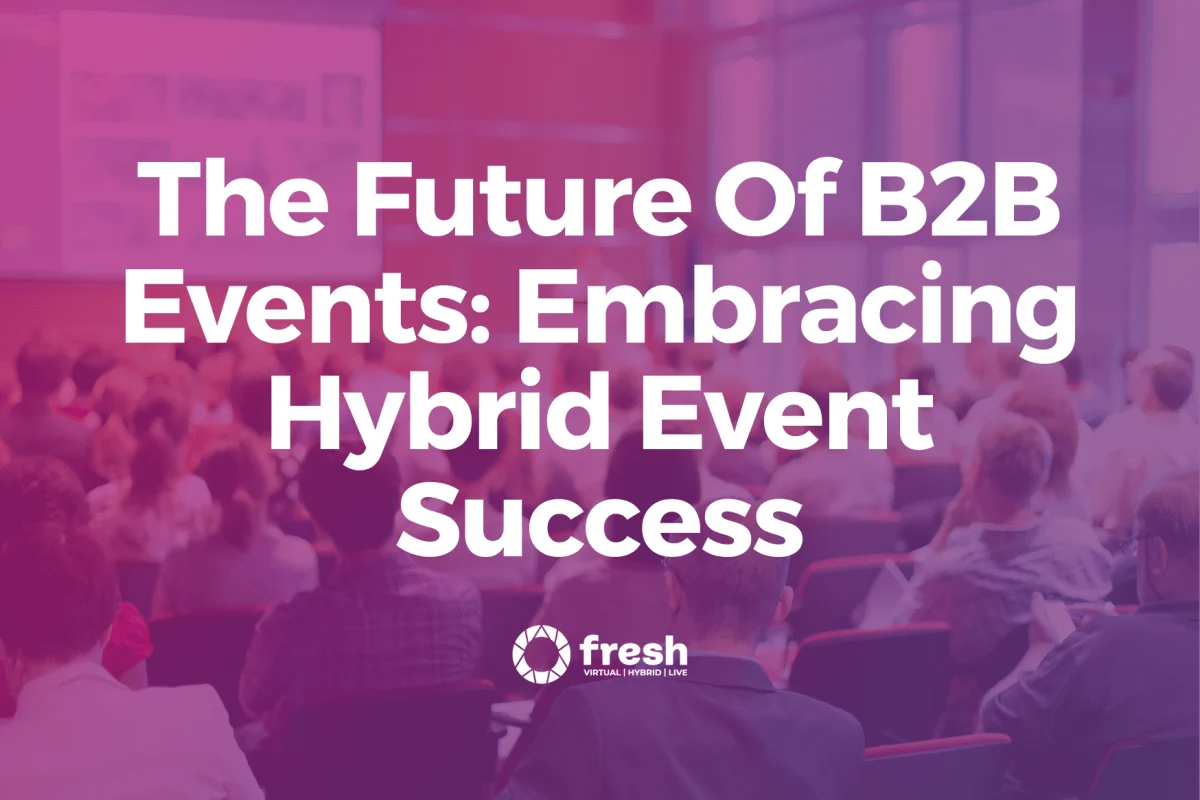What is a hybrid event and how does it differ from a traditional in-person or virtual event?
The events industry is constantly evolving, and the recent global shift towards virtual events has brought a new format to the forefront: hybrid events. In the world of B2B events, hybrid events are quickly gaining popularity as a way to connect with a global audience while still providing the benefits of traditional, in-person events. This blog will explore the concept, the advantages they offer, the planning process, audience engagement strategies, marketing techniques, the role of sponsors and partnerships, successful case studies, future trends, and the overall impact of hybrid events on the industry. Let’s dive in!
Understanding Hybrid Events
As the name suggests, involves a combination of physical and virtual components. They are a fusion of traditional, in-person events and virtual conferences, creating a unique event format that offers the best of both worlds. Attendees have the option to participate either onsite or online, depending on their preferences and circumstances.
Hybrid Events: The Fusion of Virtual and In-Person Events
Hybrid events bring together the best of virtual and physical event elements, creating a truly unique experience for attendees. By incorporating a virtual component, hybrid events contribute to a reduction in carbon emissions, making them a sustainable choice for large gatherings. Additionally, they offer valuable data collection opportunities, allowing organisers to gather important details for event management purposes. The digital element of hybrid events enables the use of live polls, breakout sessions, and interactive features, enhancing event engagement.
Advantages of Hybrid Events
The format offers a range of advantages, making it an attractive choice for event planners. Let’s explore the key benefits:
Reach and Accessibility: The Global Advantage
One of the biggest advantages of hybrid events is the global platform they provide. With the virtual component, attendees from around the world can join the event, eliminating the barriers of time zones, travel, and accommodation. This global advantage allows event organisers to reach a wider audience and engage with industry professionals, thought leaders, and potential customers from different parts of the world. Hybrid events truly open the doors to a global audience.
Data Collection and Analytics: The Digital Advantage
Hybrid events offer a valuable opportunity for data collection and analytics. Through the virtual component, organisers can gather valuable data insights, such as attendee engagement, content preferences, and event performance metrics. This data is instrumental in understanding audience behaviour, planning future events, and making data-driven marketing decisions. The digital advantage of hybrid events provides event organisers with a wealth of information to optimise event experiences.
Hybrid Events Impact on ROI
Return on Investment (ROI) is a crucial metric for event organisers, and hybrid events have a positive impact on this important measure of success. Hybrid events generate media coverage and industry buzz, increasing the event’s visibility and reach. Additionally, the digital component allows for successful event marketing, engagement, and social media marketing world, leading to a wider audience, increased brand exposure, and ultimately, a higher ROI.
Planning a Successful Hybrid Event
Planning a successful hybrid event requires careful consideration of various factors, from setting clear goals and objectives to selecting the right platform. Let’s explore the key elements:
Importance of Clear Goals and Objectives
Before diving into the planning process, event organisers must establish clear goals and objectives. These goals will guide the planning, marketing, and execution of the event, ensuring a focused and successful outcome. Clear goals help organisers measure the success of the event, track the return on investment, and make data-driven decisions for future events.
Selecting the Right Hybrid Event Platform
Choosing the right hybrid event platform is crucial for a successful event experience. The platform should seamlessly integrate virtual and physical event elements, offering a user-friendly interface for attendees, speakers, and organisers. Look for a platform that provides robust features, such as live streaming capabilities, virtual attendee engagement tools, and onsite participant management. It is important to ensure that the platform is capable of providing valuable data insights for both virtual and physical attendees, enabling organisers to understand audience engagement and measure the success of the event.
Overcoming Time Zones and Venue Challenges
One of the challenges is managing attendees in different time zones. To overcome this challenge, organisers should implement a hybrid event format that accommodates attendees from various time zones, ensuring a similar experience for virtual and onsite attendees. Leveraging the right technology, organisers can provide valuable content to virtual attendees despite the time zone differences, maintaining engagement and maximising the reach of the event. Additionally, hybrid event platforms can help overcome venue challenges, providing a seamless experience for both virtual and physical attendees.
Budgeting for Hybrid Events
Budgeting is a critical aspect of planning a successful hybrid event. It is important to allocate resources for a hybrid event platform that supports virtual and physical event management, engagement tools, marketing purposes, and valuable data collection. Consider the costs of technology, live streaming, virtual engagement, content marketing, and social media marketing, ensuring that the budget is allocated appropriately to maximise the success of the event. A well-planned budget is essential for a successful experience.
Engaging Audiences in Hybrid Events
Audience engagement is a key component of a successful hybrid event. To create an unforgettable experience, event organisers must implement strategies that engage both virtual and physical attendees. Let’s explore the strategies for audience engagement in hybrid events:
Strategies for Audience Engagement
Event organisers should implement strategies that ensure high engagement for virtual and physical attendees alike. This can be achieved through live streaming, interactive features, social media marketing, and a well-designed event engagement platform. Leveraging the benefits of a hybrid event platform, organisers can drive engagement through live polls, breakout sessions, content marketing, and social media marketing, creating a valuable experience for attendees.
Benefits of Interactive Features in Hybrid Events
By incorporating live polls, virtual engagement tools, and breakout sessions, organisers can create a dynamic event experience that encourages attendees to actively participate and interact with the content. Interactive features also provide valuable data insights, social media marketing, and successful audience engagement, contributing to the success of the event.
Balancing In-Person and Virtual Attendee Experiences
In a hybrid event, it is important to balance the experience of onsite and virtual attendees. By leveraging the benefits of a hybrid event platform, organisers can create a similar experience for both virtual and physical attendees, ensuring that no audience is left out. This balance is achieved through the right technology, content marketing, event engagement tools, and social media marketing, creating a successful event experience for attendees, regardless of their physical presence.
Marketing Strategies for Hybrid Events
Helping event organisers reach a wider audience, generate interest, and maximise event engagement. Let’s explore the marketing strategies for hybrid events:
Leveraging Social Media for Promotion
Social media marketing is a powerful tool for promoting hybrid events, attracting virtual attendees, global audiences, members of the press, and industry professionals. By leveraging social media platforms, event organisers can create a buzz around the next hybrid event, generate excitement, share valuable content, and engage attendees before, during, and after the event.
The Power of Email Marketing
Email marketing is another effective marketing strategy for hybrid events. By utilising the power of email marketing, event organisers can engage virtual attendees, members of the press, global event attendees, social media marketing, and valuable data insights. Email marketing is a great way to promote the next hybrid event, share important details, build anticipation, and drive event success. Combined with social media marketing, email marketing is a powerful tool in the event organiser’s marketing arsenal.
Role of Sponsors and Partnerships in Hybrid Events
Sponsors and partnerships play a crucial role in the success of hybrid events, providing financial support, industry expertise, social media marketing, valuable data insights, and a wider audience reach. Let’s explore the role of sponsors and partnerships in hybrid events:
Attracting Sponsors for Hybrid Events
The success of hybrid events relies heavily on attracting sponsors. Organisers can achieve this by presenting lucrative marketing opportunities that appeal to potential sponsors. Emphasising the advantages of hybrid event exposure, industry engagement, social media marketing reach, and valuable data insights is an effective method for enticing sponsors. Additionally, demonstrating the achievements of past successful hybrid events can further entice sponsors. Engaging sponsors in the planning process of hybrid events also proves to be a great way to attract their support and participation.
Building Strategic Partnerships for Event Success
Fostering enduring connections forms the bedrock of thriving event partnerships. Common goals underpin the success of hybrid events. Strategic alliances enrich the attendee experience. Coordinating with partners results in pioneering hybrid event experiences. Involving partners in event planning nurtures a shared sense of ownership. Collaborative partnerships drive innovative hybrid event experiences and amplify the impact of the next event, delivering great benefits to all involved.
Showcasing Sponsors and Partners during the Event
Elevating the overall hybrid event experience is vital, and showcasing sponsors and partners plays a crucial role in achieving this. Publicly recognising their contributions not only enhances event engagement but also boosts the event’s success. Incorporating interactive sponsor and partner showcases adds an extra layer of engagement, while leveraging the virtual component extends their reach to a global audience. These strategies are key to creating a dynamic and impactful event experience.
Case Studies of Successful Hybrid Events
Innovative event formats and digital strategies are at the heart of high-performing hybrid events, showcasing the power of strategic planning. Real-life examples inspire global audiences and offer valuable insights for event planners. For instance, a hybrid event at Apple Park in San Diego seamlessly blended in-person and virtual experiences, redefining audience engagement. It exemplified the great benefits of trade shows with an event app, setting the stage for the next event. These hybrid event examples create memorable, customer-focused experiences.
Key Takeaways from High-Performing Hybrid Events
Learning from successful hybrid events drives continuous improvement, informing future event planning with valuable insights. Analysing the success factors and best practices of high-performing hybrid events shapes future event strategies, providing actionable insights for the next event. These key takeaways are essential in enhancing event experiences, much like the great benefits showcased in innovative hybrid event examples.
Innovative Practices in Hybrid Events
Innovative hybrid event practices drive engagement and success. Breakout sessions enhance interaction, while live polls foster engagement. Including a virtual element alongside physical events expands audience reach. Implementing a mobile app enriches the event experience, and leveraging hybrid event technology drives innovation in event planning. These practices enable event organisers to create immersive and interactive experiences, leading to great benefits for both attendees and organisers. By embracing these innovative practices, event planners can elevate their next event to new heights, ensuring a memorable and impactful experience for all participants.
Future Trends in Hybrid Event Planning
The evolution of hybrid event planning is driven by digital strategies, shaping the future landscape. Anticipate virtual components in upcoming hybrid events, as they cater to a global audience and prioritise a consistent experience for all attendees. Success will hinge on employing the right tools and technology, as seen in hybrid event examples. Embracing these trends offers great benefits, ensuring the seamless fusion of in-person and virtual experiences.
How Digital Strategies are Shaping Hybrid Events
Embracing innovative digital strategies plays a pivotal role in shaping the success of hybrid events. The integration of social media marketing is not just an add-on but a fundamental component of comprehensive hybrid event planning. Leveraging the right technology is essential for delivering seamless and impactful hybrid events. By embracing digital strategies, event organisers can effectively cater to the diverse needs of a global and varied audience. The evolution of hybrid event planning is intrinsically tied to the implementation of advanced digital engagement strategies.
Sustainability and Hybrid Events
By hosting hybrid events, we can actively contribute to the reduction of the carbon footprint associated with large gatherings. The integration of virtual components in hybrid events offers a unique opportunity to appeal to a global audience, maximising reach and impact. Furthermore, the valuable data obtained from hybrid events provides insightful metrics for understanding attendee engagement and satisfaction, which can inform and enhance future event planning strategies. By incorporating online attendees, we create a wider audience and global reach, expanding the potential network of participants and stakeholders. Hybrid events truly offer a harmonious balance between physical and digital experiences, setting the stage for the next generation of innovative and sustainable trade shows and events.
Creating an Unforgettable Hybrid Event Experience
Leveraging the appropriate event app and hybrid event examples can create a seamless and unforgettable hybrid event experience. This allows for a relatively high number of developers to engage, both in-person and virtually, providing great benefits for event organisers. Integration of a hybrid event platform ensures a balanced combination of physical and virtual experiences, helping to enhance event engagement. By offering a virtual element and utilising the right tools, hybrid events become an unparalleled opportunity to connect with a diverse audience.
Ensuring Smooth Registration and Ticketing
Implementing a comprehensive hybrid event platform facilitates a seamless registration process for both virtual and in-person attendees, ensuring a smooth start to the event. By leveraging the right technology, such as an intuitive event app, organisers can successfully manage ticketing and registration, offering flexible options to cater to various attendee preferences. The use of virtual event platforms further enhances the registration and ticketing experience, promoting a unified approach for both physical and online participants. Embracing these technological advancements brings great benefits, streamlining the overall event experience for all stakeholders.
AV Production and Technical Aspects of Hybrid Events
AV production plays a crucial role in enhancing the hybrid event experience, and this can only be achieved with the help of a competent team. The usage of suitable technology can enable the seamless integration of breakout sessions, resulting in increased engagement for both in-person and virtual attendees. Incorporating the right tools to deliver smooth and captivating content can significantly benefit trade shows and event apps. By embracing proper AV production and technical aspects, organisers can ensure that their upcoming events are successful.
When it comes to AV production for hybrid events, it is essential to understand the requirements of both virtual and in-person attendees. With this knowledge, you can create an immersive experience that caters to everyone’s needs. Utilising advanced audiovisual equipment like projectors, LED walls, cameras, microphones, etc., can drastically improve the quality of presentations, speeches, and panel discussions.
Additionally, incorporating interactive elements like live polls or Q&A sessions during a presentation can further boost engagement levels among attendees. The availability of high-quality video streaming services also ensures that virtual participants have access to seamless live streams on their devices.
Post-Event Follow-up and Success Measurement
Maximising the impact of hybrid events requires measuring their success. By using valuable data for post-event follow-up, targeted outreach and relationship-building with attendees can be achieved. Social media marketing plays a vital role in extending the reach and engagement of the event beyond its conclusion. Gathering significant information, like attendee feedback and participation metrics, offers insights for future enhancements. Hybrid events provide a wealth of information to analyse the effectiveness of virtual and in-person aspects, shaping strategies for future events.
Are Hybrid Events the New Norm for B2B Events?
Conclusion
Hybrid events have emerged as the future of B2B events, combining the best of both virtual and in-person experiences. The advantages of hybrid events are undeniable – from global reach and accessibility to data collection and analytics, they offer a whole new level of engagement and ROI. Planning a successful hybrid event requires clear goals, the right platform, and effective strategies for audience engagement. Marketing and leveraging social media, email marketing, and content creation are crucial for event promotion. Sponsors and partnerships play a vital role in the success of hybrid events, providing support and exposure. By learning from case studies and adapting to future trends, we can create unforgettable hybrid event experiences. As the world transitions into the post-pandemic era, hybrid events are poised to become the new norm for B2B events. If you’re ready to embrace this exciting future, get in touch with us today to start planning your next hybrid event.
Chat with our team today
Read More
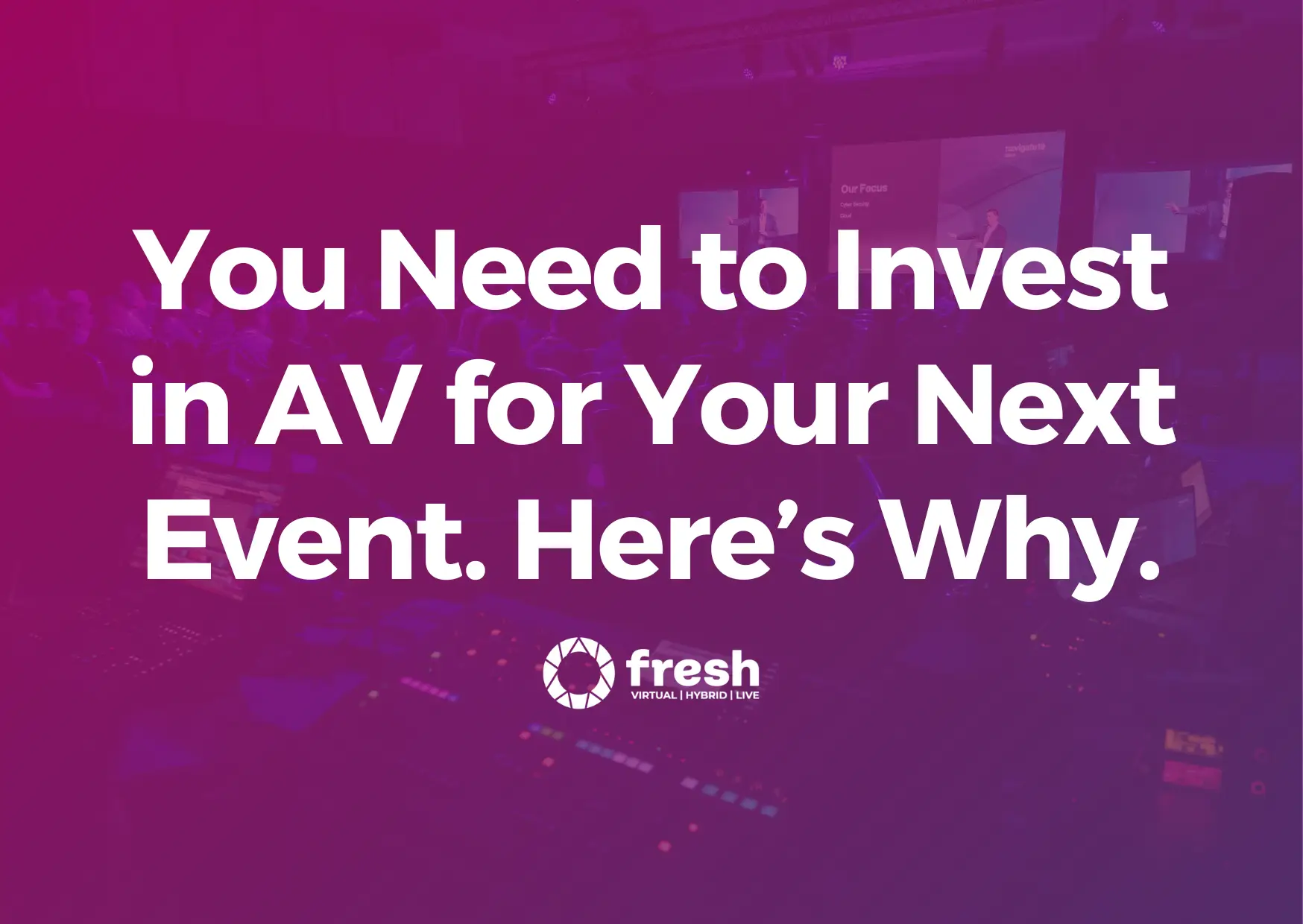
You Need to Invest in AV for Your Next Event. Here’s Why.

Event Logistics Without the Headache: How to Keep It Fresh (Literally)
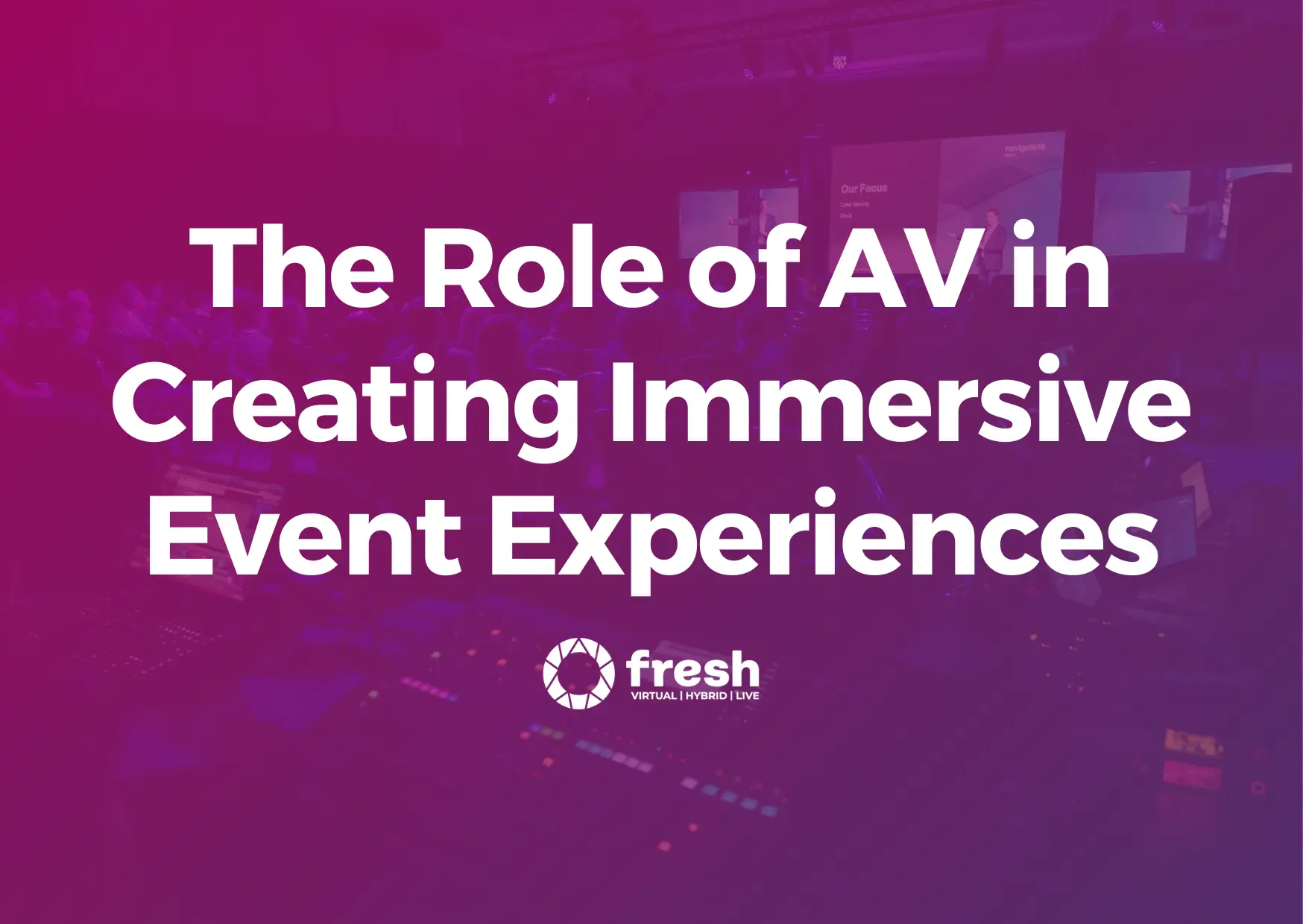
The Impact of AV Technology in Creating Immersive Event Experiences
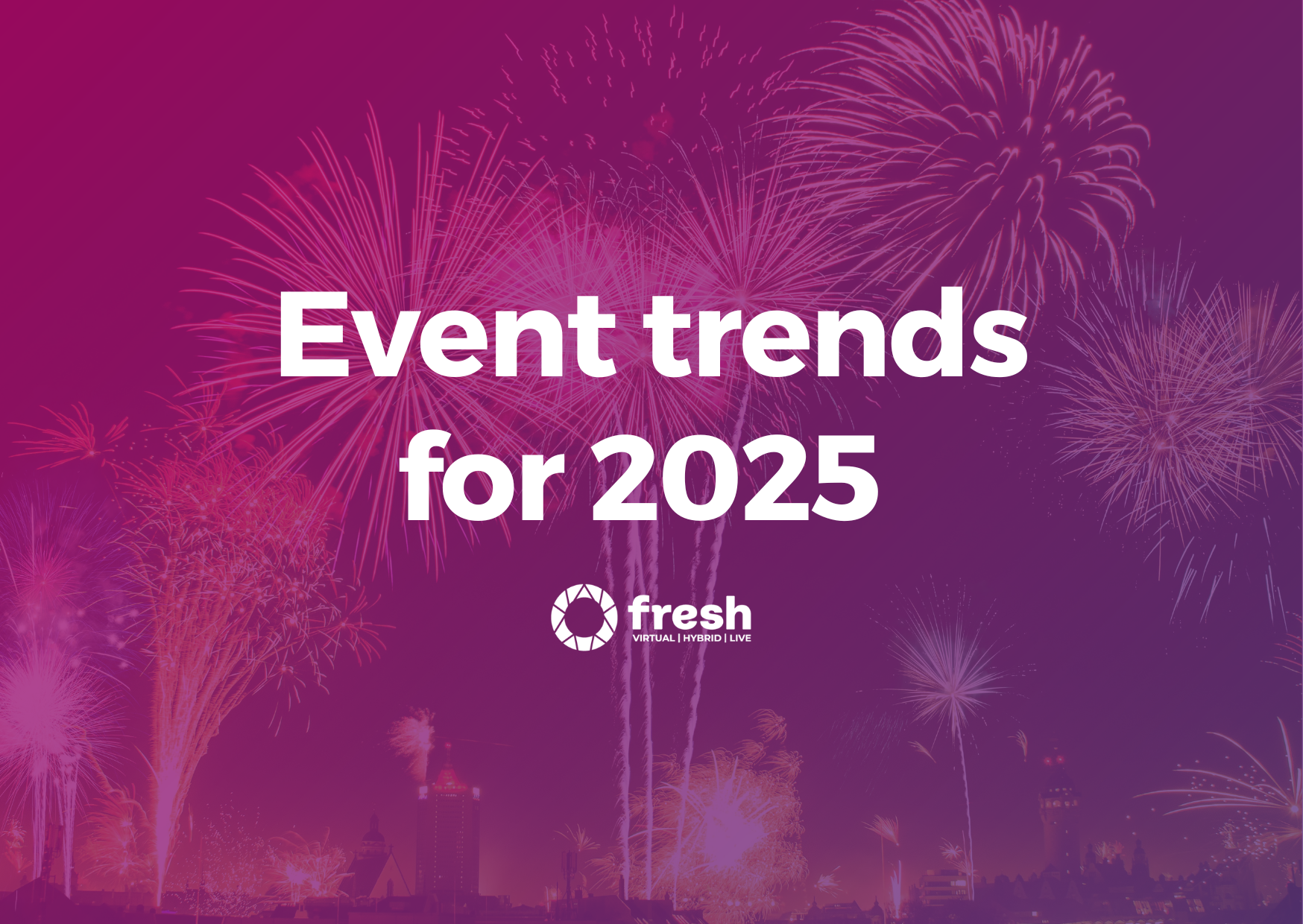
Top Event Trends for 2025: AV, Logistics, and Videography
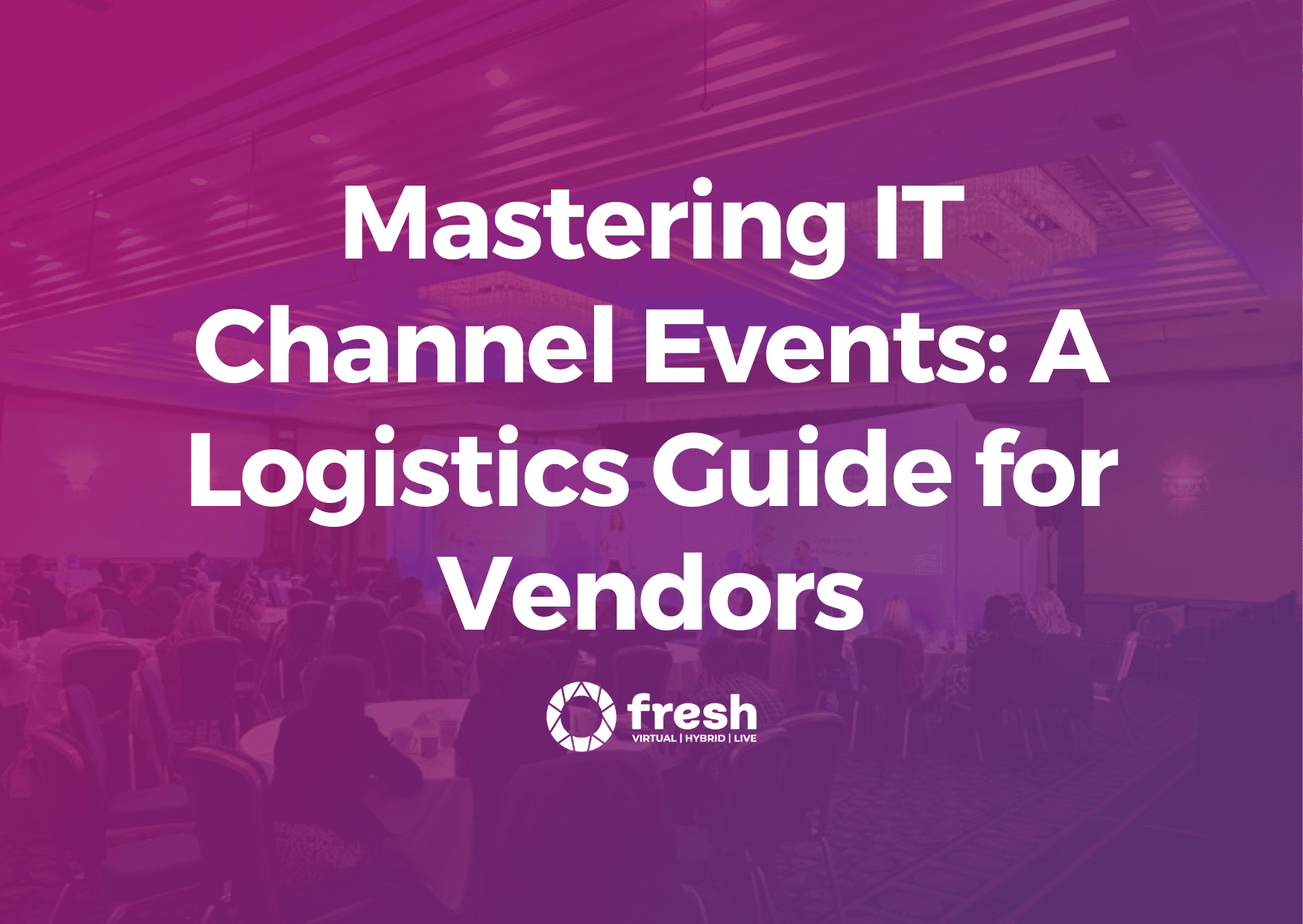
Mastering IT Channel Events: A Logistics Guide for Vendors
